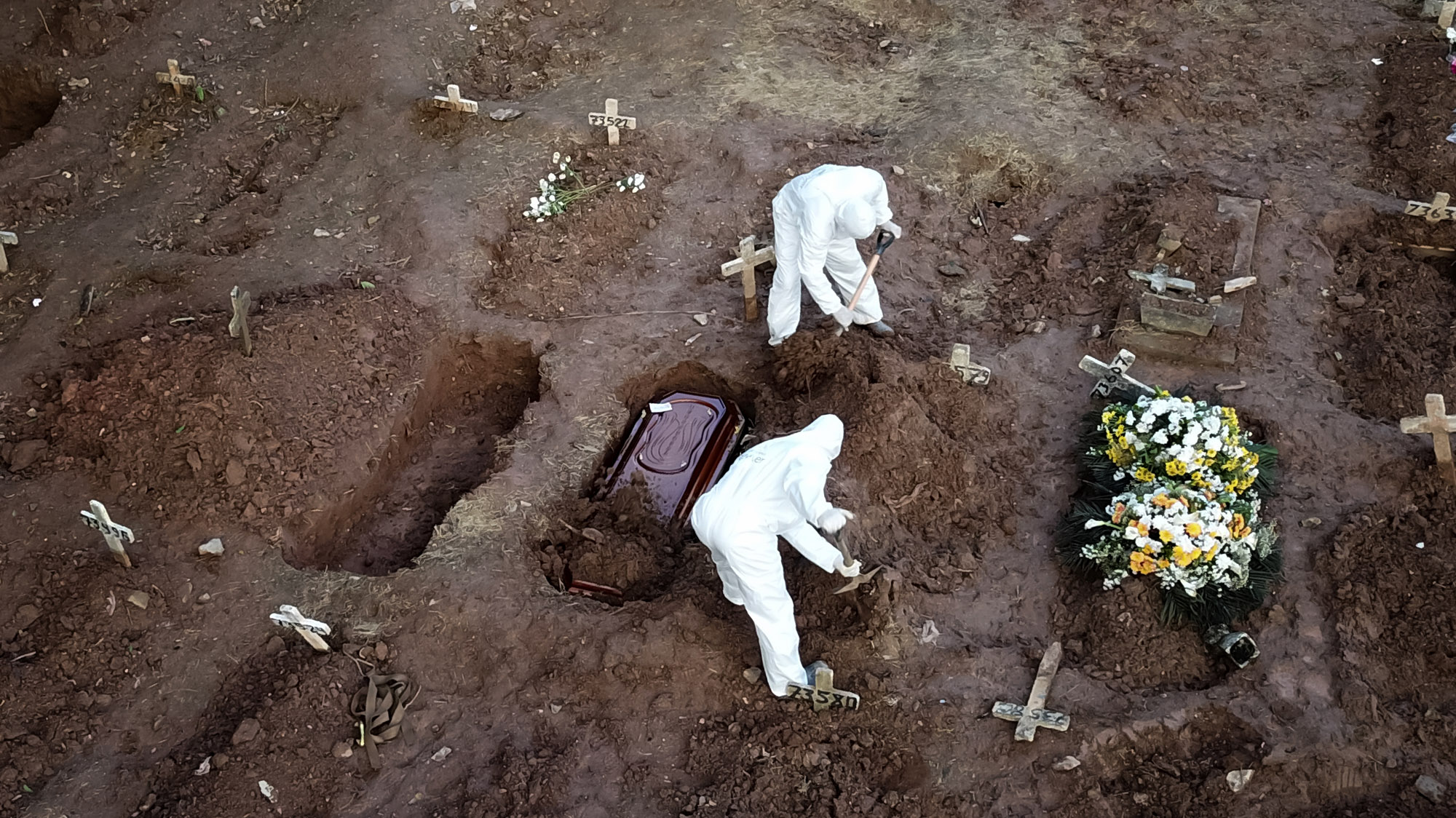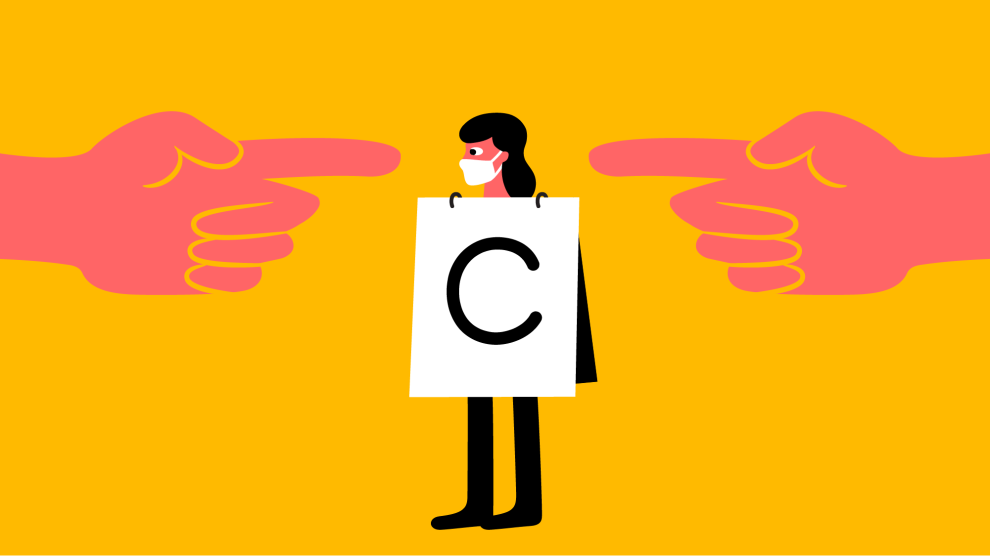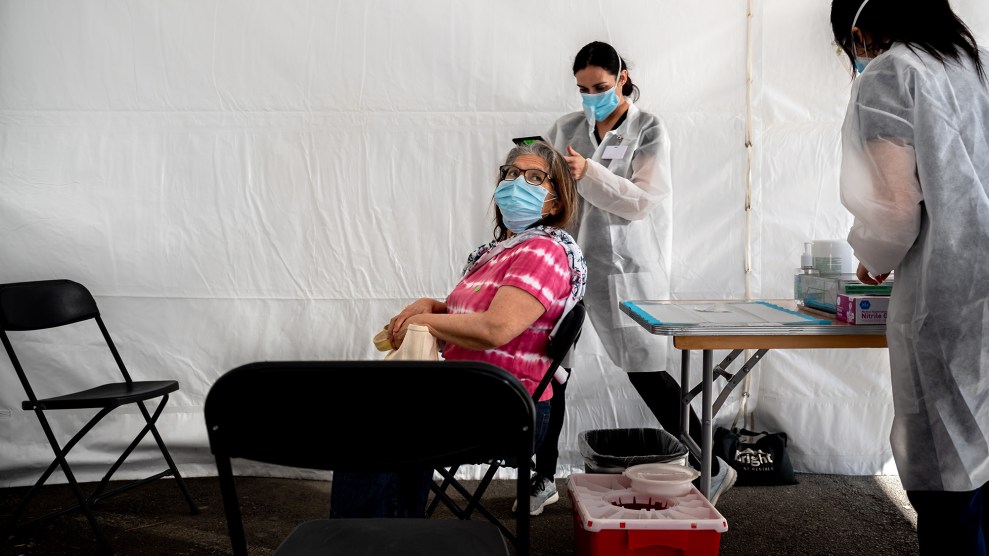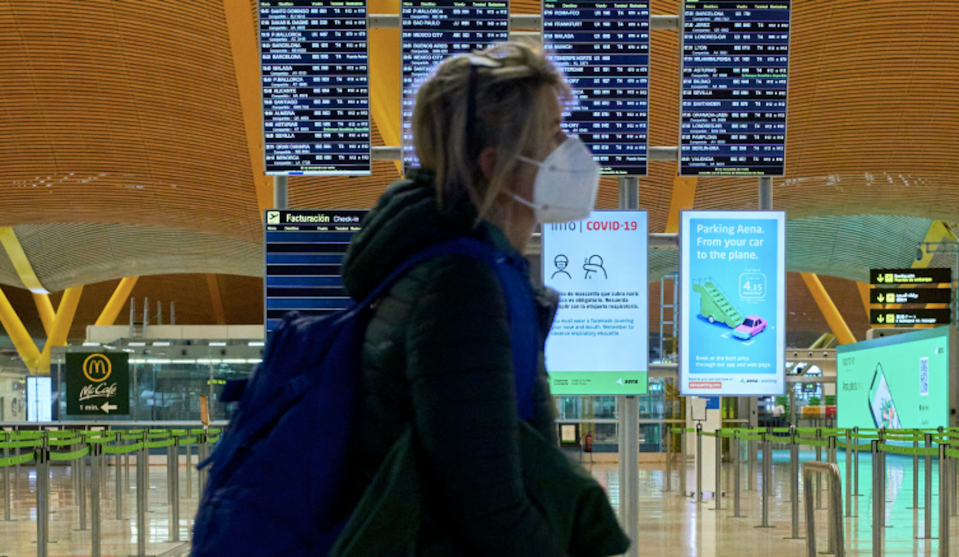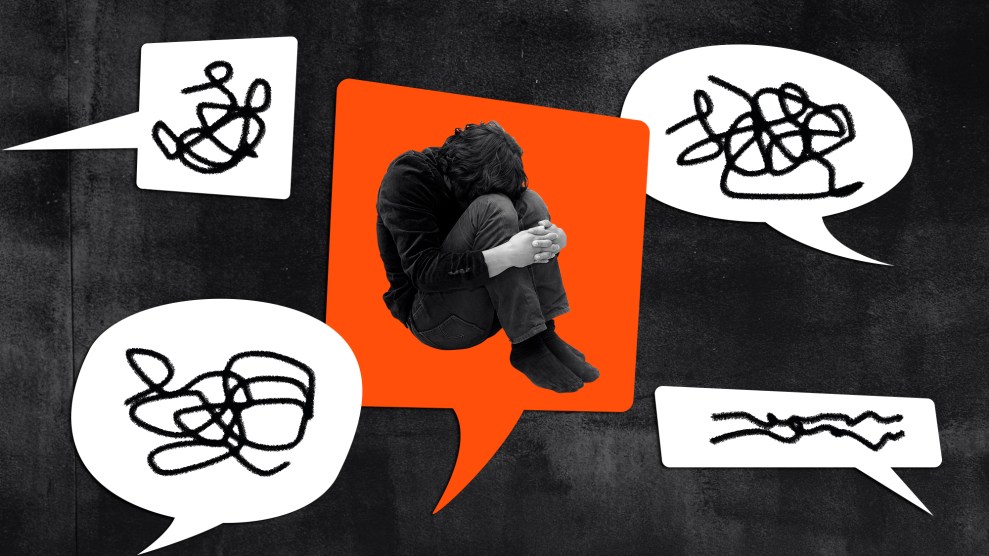The first metallic bang echoes a few minutes before 8:30 p.m. Every night of every week, one neighbor from across the street summons the rest of us—not to cheer for health workers from our windows with kitchen utensils, as they did many months last year in cities across the US. But to protest. When it’s time, heads and arms holding out pots and pans approach the windows and thus begins the dissonant symphony objecting to the government’s handling of the coronavirus pandemic, to the president some believe is trying to kill us, either out of neglect or evil intent. I’ve never joined them and can’t find it in myself to begin now. I’ve noticed that recently there are fewer heads, fewer arms, fewer pots and pans. The voices are quieter and the prayers that used to follow the ritual have ceased. After the bangs, all I hear now is a solitary, mournful flute. I wonder if, one year into the pandemic, we have given up on divine intervention, or if it has given up on us.
I live in Rio de Janeiro, where we are in the middle of a 10-day lockdown with an 11 p.m. curfew. It’s too late, too little. The catastrophe of COVID in my country has become news all over the world. A world that is slowly reopening. Yet not here; here, we can’t go anywhere. We can’t do anything. It’s the beginning of autumn and one day last week 3,650 people died in the country from COVID-19 in 24 hours. I text my parents, both physicians in Rio, that statistic, hoping somehow they can help me make sense of the inconceivable. My dad texts me back saying we’re going to reach 5,000. I believe him; this Tuesday we reached another record: 3,780 deaths. During a recent car ride with them, I have a much delayed realization that my parents could have died like many others have, and I burst into tears. I tell my parents. They tell me I’ve been too emotional and angry recently, which of course makes me angry that they’re telling me how to feel. All I can do is feel. I need them to be more emotional and angry, too. How can they not be? Shouldn’t we be demonstrating out in the streets? But is now the time?
Some time in November, when infection rates dropped to the lowest point since April, we thought we had been through the worst. But now I’m convinced that somehow the worst is yet to come. “We’re all going to die one day,” President Jair Bolsonaro told us one year ago. “How much longer will the crying go on?” he tells us now, as more of us dies each day.

Supporters of President Jair Bolsonaro gather in Brasília to celebrate his birthday.
Leo Bahia/Fotoarena via ZUMA Press
I read the headlines. I learn my home, which has a universal health care system that was once the envy of my American friends, is a global threat. “Brazil is suffocating,” says Al Jazeera. That much celebrated health care system has collapsed in pretty much every city. The virus, and the government’s response, has turned us into the worst place on earth for COVID-19, especially now that a raging, more contagious variant with our name has traveled around the globe. From the beginning, Bolsonaro called the coronavirus a little flu and treated it as such. He fought governors who insisted on lockdown measures to control the spread and has continued to fight them long after it got out of control. We’ve had four different health ministers over the course of the deadliest public health crisis in a generation. Instead of mask wearing and social distancing, the president has encouraged and taken part in public gatherings and promoted unproven treatments. More young people like me are dying. Doctors face the impossible choice between who lives and who dies. In one city, there’s a five-hour long wait to register the dead. In another, school buses will be used to transport bodies. Hospitals have no oxygen, patients can’t breathe. I’ve heard that my friend’s girlfriend’s sick father was lucky to find a bed. My cousin’s father found a hospital bed but wasn’t so lucky.
I know, though, luck won’t save us, science will. Or it should. I’m lucky in some sense; my parents both got vaccinated months ago as part of a clinical trial. Volunteering was their best shot. But they are among the fortunate few for whom immunization is no longer a distant promise. Last year, the government turned down a deal to purchase 70 million doses. Now we’re running so short on vaccines that appointments are being canceled and you can forget any guarantee of a second dose. The government pretends to reassure us by setting vaccination goals, but it’s impossible to hold anyone accountable; every other day the goals seem to change. They now say that all the 210 million of us will be vaccinated by the end of 2021, but here we are at just 8 percent of the population having received the first dose. In the US, for comparison, that number is almost 29 percent; in the UK, it’s 46 percent. At least we got some good news this week: We might start producing our own vaccine soon. Or maybe the US government will agree to an exchange deal for the early delivery of 20 million doses.
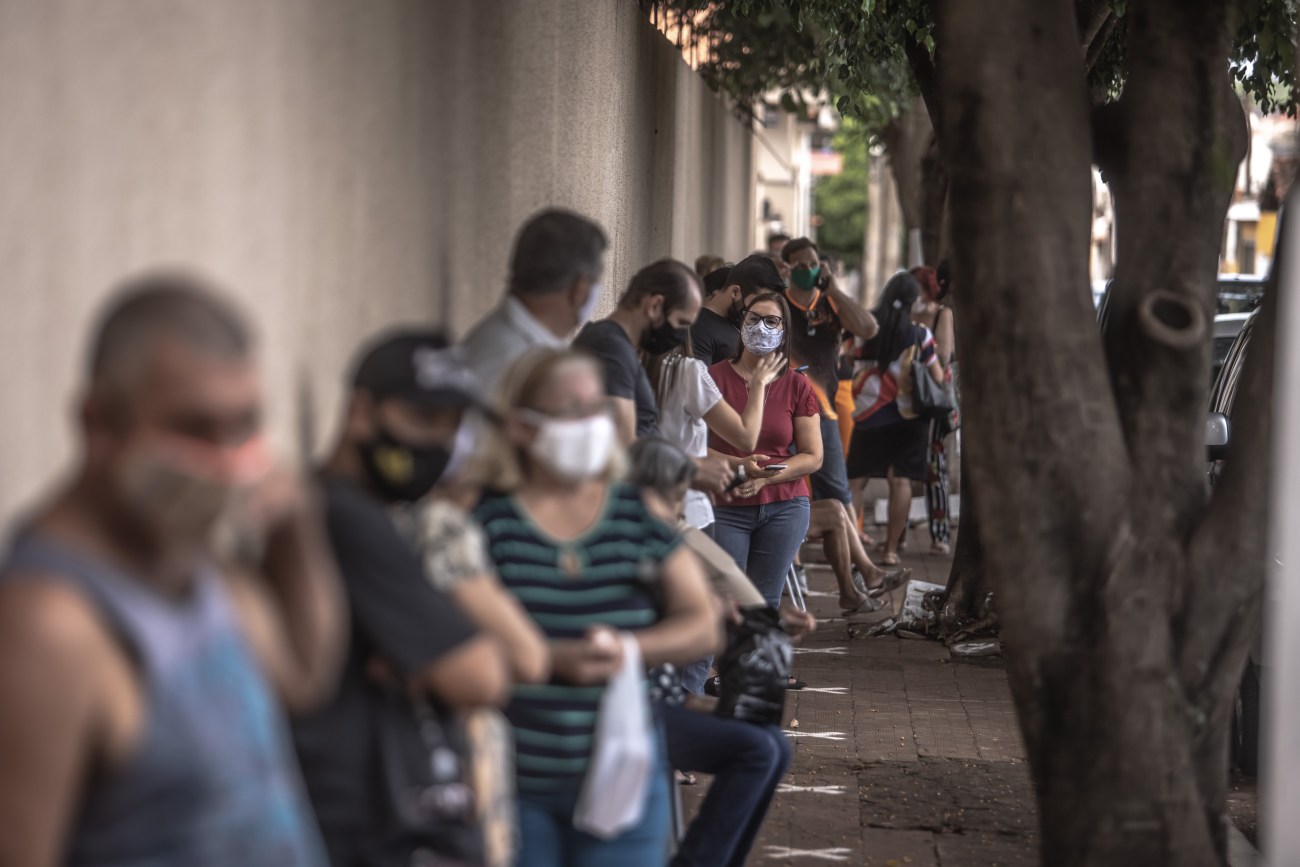
People wait in line to receive a COVID-19 vaccine outside a public school in Serrana, São Paulo state.
Jonne Roriz/Bloomberg via Getty Images
I suppose I could continue and list everything that has gone astray and place blame where it is due. But why? What good will it do? As my parents noted, I’m angry, yet I still can’t reach out my window and bang. There’s something essentially solitary about what we’re all experiencing collectively. We can’t even seem to all agree, for one, on how we got here—or what here even means. We’ve been left to fend for ourselves, but even our own have turned against us. Some of us are battling family members in denial, hoping they won’t end up in the hospital. Not even with COVID, but with drug-induced hepatitis caused by the bogus “miracle cures” Bolsonaro has repeatedly endorsed. Some of us who are in our twenties haven’t gone out on a date in over a year, while others attend clandestine parties. Many don’t have the choice to stay home—they’re working in hospitals and nursing homes; they are our “essential” workers, though we don’t treat them that way. Others can stay home and choose not to think about those who don’t. Now, 12 million cases and more than 310,000 lives lost later, there is still no end in sight. When things aren’t getting any better, are you supposed to keep trusting they ever will? At what point does it all become wishful thinking?
From 2017 to 2020, I lived in the US. Now I can’t help but think of all the places I can’t go, through no fault of my own. Only eight countries allow Brazilians to enter without major travel restrictions: Afghanistan, Albania, Costa Rica, Slovakia, North Macedonia, Nauru, Central African Republic, and Tonga. The large suitcase I packed in a hurry and brought with me last March when I boarded one of the last Delta airline flights from Texas to my hometown still sits half open, mostly untouched, in the middle of my bedroom. I think about the things and people I left behind, confident I’d soon be back to the US. But how can I complain? Yes, I had to abandon a life I was building elsewhere. Yes, this home hasn’t been my home in more than three years. But what matters is that my loved ones and I actually do have a life despite what sometimes feels like all the odds.
I look at Israel, and I look at the United States, and I try to imagine what it must feel like to finally see the light at the end of the tunnel. I’m happy for my coworkers and friends abroad receiving their jabs and posting selfies with their vaccine cards. I rejoice in their sense of relief. And still, I grieve for Brazil. I think about what we could have done with our lifesaving universal public health care system and world-leading expertise in massive immunization campaigns. Look at what we did eradicating polio and rubella and protecting millions against the swine flu in a few months, or what we do every year with a nationwide influenza vaccination program. Brazil should have been looked up to as a model, not looked down upon as a global threat.
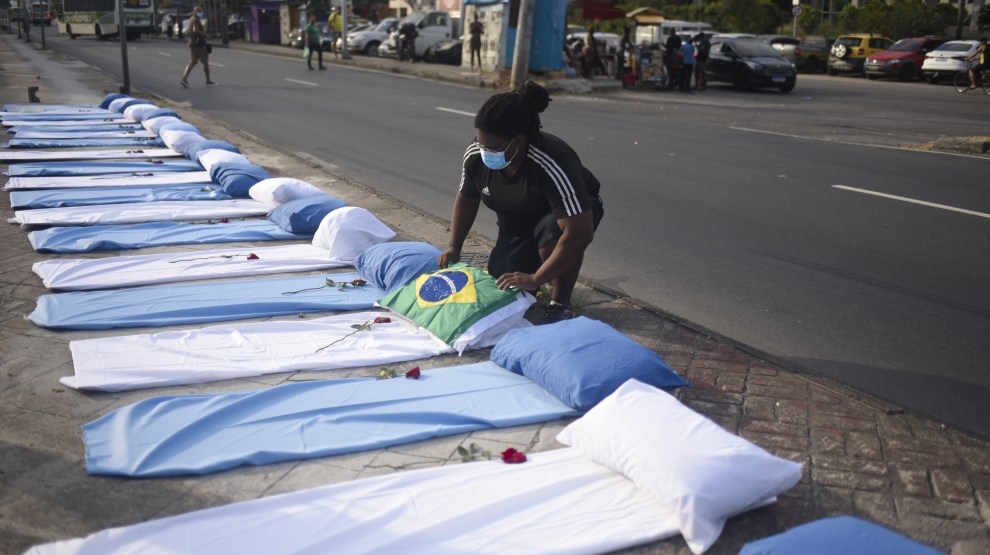
A protest is held in front of the Municipal Hospital Ronaldo Gazolla in Rio de Janeiro.
Fabio Teixeira/Anadolu Agency via Getty Images
While talking on the phone with a friend who is in the US, I look for figures of speech to explain what it looks like for those of us who live down here, but I can’t. I don’t think I can explain it in writing either. So I’ll borrow something another friend told me recently: “We have accepted necropolitics. We’ve grown used to being killed and left to die.” (Is this who we’ve always been?) What this means is that on a fundamental level, we’ve lost hope, the kind of hope that led people to bang pots and pans outside their windows. And hope is a very dangerous thing to lose.
